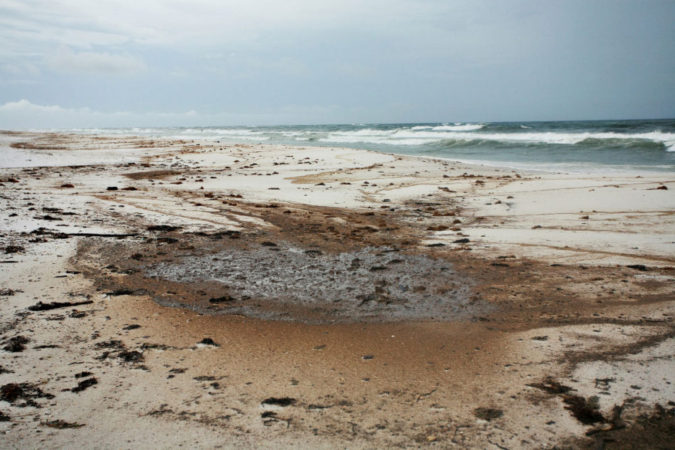
by Jeremy Morrison, Inweekly
Environmental organization Oceana released a report on Wednesday that the group says finds offshore oil drilling to be a precarious proposition. The report runs counter to a narrative being put forward by the American Petroleum Institute, which hopes to open up additional offshore territory and contends drilling has become safer since the 2010 oil spill in the Gulf of Mexico.
The report, titled “Dirty Drilling: Trump Administration Proposals Weaken Key Safety Protections and Radically Expand Offshore Drilling,†comes at a time the federal government is finalizing a five-year drilling plan that determines offshore leases and could potentially open up additional areas to drilling, including in the Gulf of Mexico off of Florida.
“Less safety and more drilling is a recipe for disaster,†Oceana Campaign Director Diane Hoskins said in a statement. “President Trump must drastically reverse course in order to prevent another BP Deepwater Horizon-like disaster.â€
The Oceana report contends that the offshore drilling industry is poorly regulated, inherently risky and ill-equipped to deal with an oil spill or leak. It points out that The Bureau of Safety and Environmental Enforcement incorporates industry-written standards into regulations, then routinely grants exemptions to those regulations. It also touches on blowout preventer technology — a technology touted by API — which it describes as “the last line of defense against a catastrophic spill,†and and argues it remains untested in the extreme environment encountered in a real-world scenario.
Also in the report, Oceana provides data designed to deter. The organization notes that there were at least 6,500 oil spills in U.S. waters between 2007 and 2017, and that the sizes of those spills have been found to be routinely lowballed. It also argues that the relatively low financial penalties incurred by drilling operations — $44,675 per violation, per day — do little to deter corner cutting in an industry accustomed to $1 million-per-day operating costs.
Oceana is releasing this report as the API, through its Explore Offshore group, is attempting to frame offshore drilling as an industry integral to the county’s energy portfolio and also vastly safer than in the Deepwater Horizon era. Recently, Offshore Explore held an event in Pensacola, bringing in former U.S. senator Jim Webb, who also served as secretary of the Navy, to make the case for more offshore drilling.
The API didn’t find too receptive of an audience in Pensacola, the nearest coastal area in Florida to the 2010 oil spill. Local, state and federal elected officials from the state are fairly unanimous in their opposition to the proposition of offshore drilling, fearing an accident could be devastating not only to the environment, but also to the state’s tourism economy.
“We should not be expanding dirty and dangerous offshore drilling to new areas when there’s overwhelming bipartisan opposition,†Hoskins said in the release.
To read the full Oceana report, visit www.usa.oceana.org/DirtyDrilling



